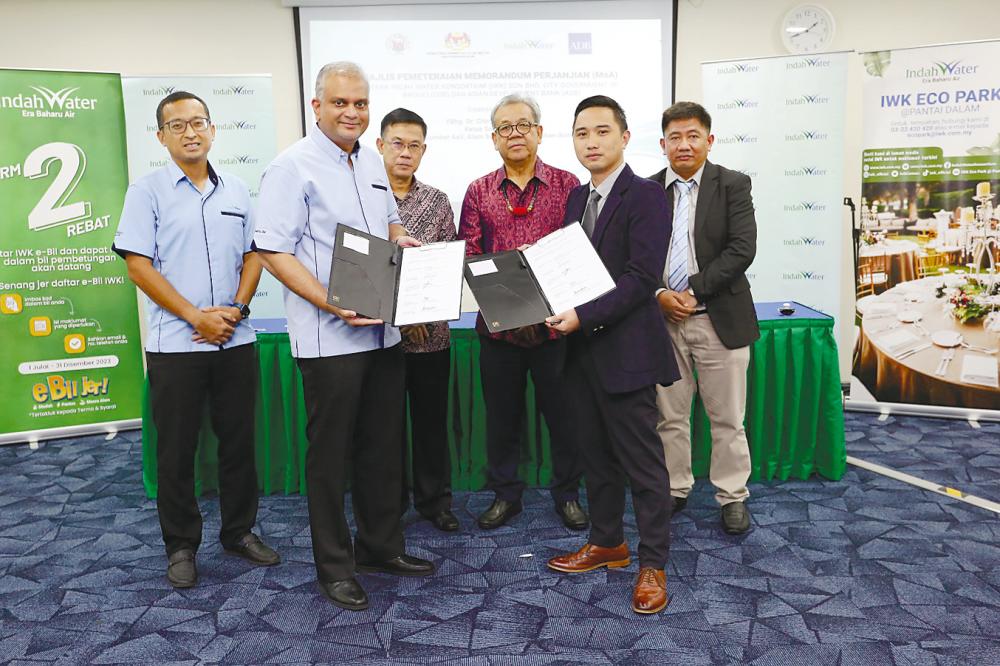KUALA LUMPUR: Indah Water Konsortium Sdn Bhd (IWK), Malaysia’s national sewerage company, plans a tariff adjustment next year to ensure sustainable sewerage services and is part of broader efforts to enhance sewerage infrastructure, CEO Narendran Maniam told SunBiz.
“Our tariff, although we have gone through a recent tariff adjustment, there will be another slight tariff adjustment next year. The intention here is not to be a profitable company ... we just want to cover our costs,” he said.
Narendran noted that there had been no tariff adjustment for the last 28 years before the recent one.
He disclosed that IWK has secured funds from the Kumpulan Wang Simpanan Modal Pembetungan (KWSPM) to fund upgrades and refurbishments.
“We spend about RM70 million to RM80 million a year from KWSMP funds. But this does not include what the government spends. The government spent close to RM3 billion to RM4 billion under each five-year Malaysia Plan to build centralised sewage treatment facilities,” Narendran said.
IWK oversees and manages 7,500 sewage treatment plants and a 21,000km sewer network and is currently implementing upgrades and refurbishments in phases.
“The recent one we completed is in Langat, a centralised plant. We are closing down all the small plants to connect to bigger plants. The intention here is to build bigger plants and to consolidate smaller plants into bigger plants, so that we (can) get rid of the plants at your housing area,” he said, adding that 80% of sewage services are already connected, (and they have) plans to further consolidate and improve the efficiency of the system.
Narendran said IWK is gearing towards becoming a circular economy company.
It currently has treated liquid residue derived from the sewage treatment process of the sewage treatment plant that is capable of reuse for purposes other than human consumption.
“We want to recycle our waste water for non-potable use. Our recycled water is purely for industrial (purposes), not for drinking. But if we do a lot of recycling initiatives, we can use existing resources from rivers purely for human consumption,“ he said.
For this, Narendran mentioned collaboration with Air Selangor, a plant in Setia Alam, as well as MoUs with Malacca and Penang to build more water recycling plants, saying “This is the future of the company and the sewage industry.”
Additionally, he said, IWK has ventured into fertiliser production, producing five tonnes daily, with a goal to cease slush disposal to landfills.
“By 2030, we want to stop disposing of our slush to landfill. We want to convert everything to fertiliser and potentially biochar, a commodity that we can sell,” he added.
Furthermore, Narendran said, IWK has embarked on biogas production and solar installations for self-consumption.
“Biogas can generate green electricity for our self-consumption. (And) we have plans to roll out solar installation for self-consumption. The plan to install more than 1,000 sites solar for self-consumption, by doing so, we reduce electricity consumption,” he said.
IWK, the Asian Development Bank and the City Government of Baguio (CGB) have collaborated to elevate sewerage management in Baguio, a city in the Philippines, through ADB’s Water Organizations Partnership for Resilience Program.
IWK has been selected as a mentor to CGB’s Baguio City Environment and Park Management Office for 12 months.
A memorandum of agreement was signed at IWK headquarters yesterday, witnessed by Natural Resources, Environment, and Climate Change Ministry secretary-general Dr Ching Thoo Kim.









